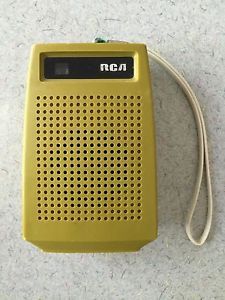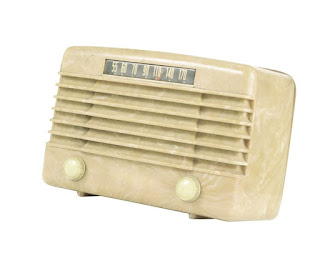By Terrie Todd
Have you experienced it yet? Someone says they heard something on the radio, and someone much younger lets out a snort and says “radio.”
It does seem radio is rapidly being replaced by podcasts, personal playlists, and any-time-that-suits-you online news broadcasts.
Personally, I still listen to my favorite Christian radio
station in the car and while working around my kitchen. I like the balance of
news, talk, and music.
 |
| I had a transistor exactly like this one in 1974. |
Radio has come a long way. Prior to the late 1800s, wireless
radio communication was unheard of. By the 1890s, however, the race was on to
develop this new form of long-distance connection and communication that would go
on to change the world. 
Marconi made it onto several postage stamps.
You’ve probably heard debates over who actually invented the
radio. That’s because, while the Italian Guglielmo Marconi secured the first
wireless telegraphy patent in England in 1896, inventor Nikola Tesla had
demonstrated wireless radio in the U.S. in 1893. Tesla’s radio patent was
granted in 1900. 
Nikola Tesla
It was December 12, 1901, when the first transmission
signals crossed the Atlantic Ocean, by Marconi. Despite this, another man
received the nickname, “the Father of Radio Broadcasting.” On Christmas Eve,
1906, a Canadian–born inventor, Reginald Fessenden, transmitted the first radio
live-sound broadcast. He read passages from the Bible and then played O Holy
Night on his violin. I can’t think of a better choice to become the first song
ever transmitted over radio waves. Can you? Reginald Fessenden
From then through World War I, radio was used mainly to contact ships at sea. Although Morse code was still used for clarity, you can imagine what a boon this provided to ships and sailors, especially in emergencies. Its significance increased even more during the war years. The ability to send and receive messages in real-time without the use of a physical messenger would have been an enormous advantage. I wonder how many carrier pigeons applied for unemployment?
It wasn’t until the 1920s that radio found its way into homes. Westinghouse began advertising radios for sale to the public after receiving a commercial radio license and creating Station KDKA out of Pittsburgh. England’s BBC (British Broadcasting Company) began around the same time in London.
Because humans will be humans, folks began building their own radio receivers, creating a problem for manufacturers. As a result, the RCA (Radio Corporation Agreements) was established and sanctioned by the government. Under RCA, certain companies could make receivers, while others could make transmitters.
During the 1926 newspaper strike, people began to turn to the
radio for their news. Radio may have provided the greatest difference between
the two world wars. While civilians had to rely on newspapers during WWI, by
WWII up-to-date war news was delivered directly to nearly every home. It also
provided a way for governments to rally public support. 
Photo from Canva
In the meantime, of course, radio had become a source of
entertainment. During radio’s “Golden Age,” advertisers controlled much of the programming.
Many vaudeville entertainers turned to radio to be heard by a larger audience. Programs
featured quarter-hour and half-hour blocks of soap operas such as Ma Perkins and The Guiding
Light. Children enjoyed Little
Orphan Annie and Flash
Gordon. The most popular show was the
sitcom Amos ’n’ Andy.
And I’m sure you’ve heard the story of the 1938 broadcast of Orson Welles’ The War of the Worlds, which created
panic when listeners believed Martians had invaded Earth.
With the arrival of television in the 1950’s, radio
programming drew away from serial programs and turned to music. Various weekly Top-40
shows became popular and the target audience shifted from families to teens and
young adults.
My grandparents had a red one much like this when I was little.
FM radio stations began to overtake the original AM stations, and new forms of music began to emerge, creating the need for more stations suited to individual tastes. Today, radio has embraced satellite and streaming internet services to get its messages out. I couldn’t begin to predict what the future holds, or whether the word “radio” will truly become a relic of the past.
Two of Terrie Todd’s fictional characters ruin their mother’s radio and find a sketchy way to replace it in her most recent novel, The Last Piece. She’s also the award-winning author of The Silver Suitcase, Maggie’s War, Bleak Landing and Rose Among Thornes. Terrie is represented by Mary DeMuth of Books & Such Literary Agency. She lives with her husband, Jon, in Portage la Prairie, Manitoba, Canada where they raised their three children. They are grandparents to five boys.
Ray Matthews dreams of being an artist, but never of selling his work to a jigsaw puzzle maker—especially the portrait of his sweetheart, Sarah. When compelled to break his oath, Ray speaks a prophecy over the puzzle—that no one will be able to finish it before he and the love of his life are reunited. During the next 80 years, the puzzle passes through four different households. Though all are profoundly affected by Ray’s girl at the wishing well, none are aware of the connection between them—until one decision unleashes a peculiar chain of events.
Follow Terrie here:
Quarterly Newsletter Sign-up





Thanks for the post! I have enjoyed radio throughout my life as well. It seems harder now to keep a station going in the car on trips. I've wondered if radio stations would be phased out. I certainly hope not!
ReplyDeleteI hope not too.
DeleteI recall turning on the transistor radio as a 3rd grader when I suppose to be asleep, and playing it under my pillow so my mom wouldn't hear me.
ReplyDeletePretty sure you're not alone in that! LOL.
DeleteI remember when FM stereo started on the car radio!
ReplyDeleteOh, you're right! I had forgotten that.
DeleteThis comment has been removed by the author.
ReplyDeleteThanks for the great post! I also had a transistor radio much like that one. I believe the color of mine was black. My brother had a ham radio that our grandfather gave him.
ReplyDelete